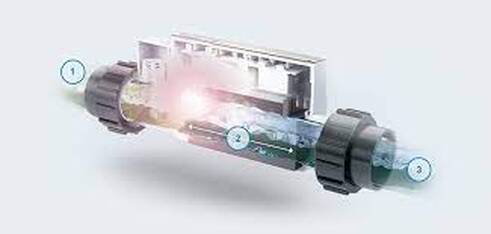|
If you're still using old fashioned chlorine tablets to sanitize your pool, it's time to seriously consider switching to salt. Salt pools not only provide a better means of pool sanitization, it also provides it in a healthier way, leading to a more enjoyable pool experience. Salt pools provide a constant stream of chlorine, making your pool less prone to algae blooms and other common problems that come with low sanitization levels. Salt pools also feel great on your skin and eyes, meaning no more of the post swim itches or eye burns! Our preferred choice for salt systems is the Pentair Intellichlor! Call today and convert your pool to salt!
0 Comments
|
Archives |
Find Us On |
Copyright © 4M Pools, LLC 2023


 RSS Feed
RSS Feed
